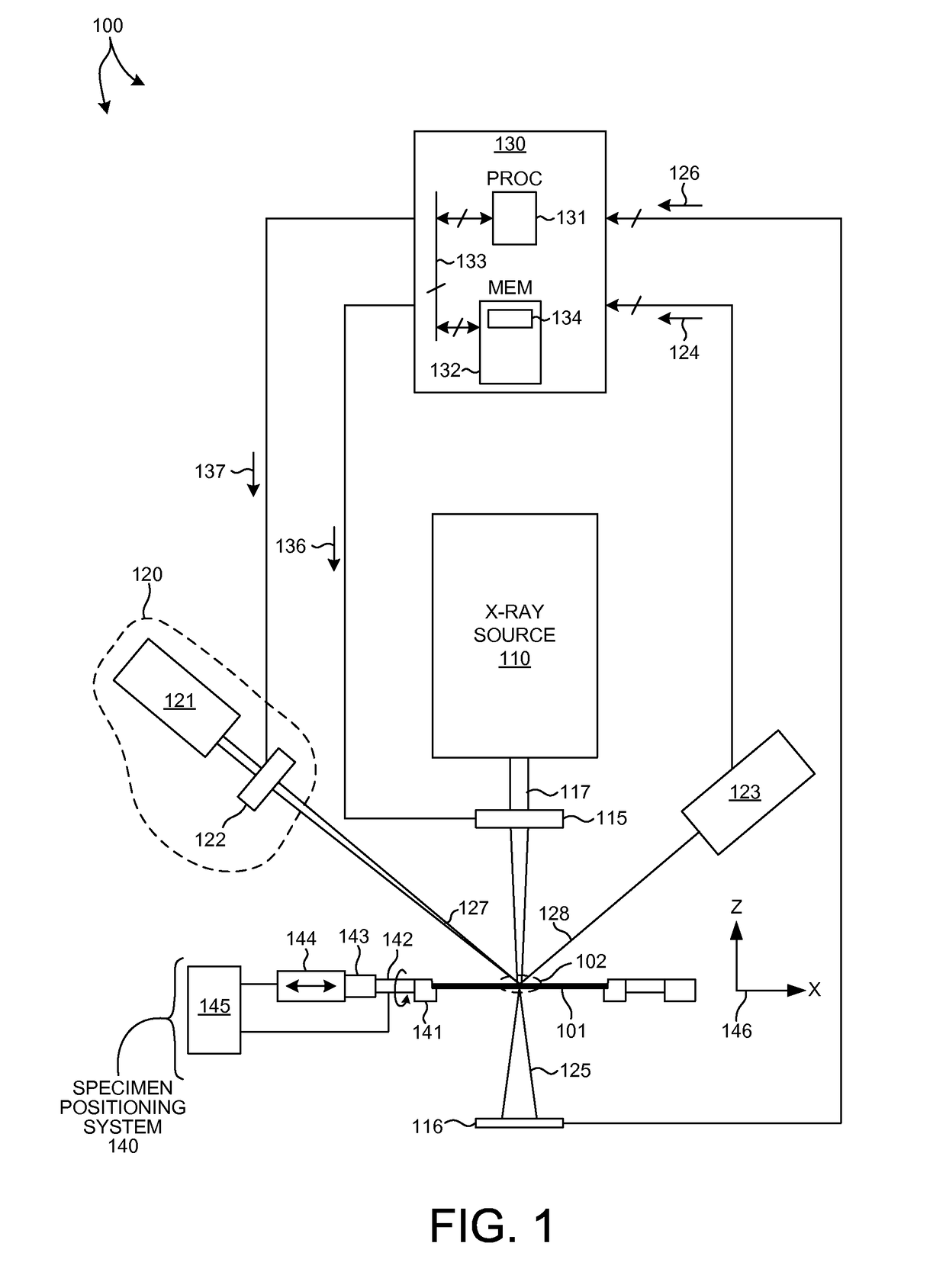Metrology tool with combined XRF and SAXS capabilities
a technology of saxs and saxs, applied in the field of metalrology systems and methods, can solve the problems of difficult characterization, inability to reliably decouple parameters characterizing the target with available measurements, and difficulty in characterization, so as to improve the precision and accuracy of parameters measured with combined saxs and saxs techniques, reduce correlations among parameters, and improve measurement accuracy
- Summary
- Abstract
- Description
- Claims
- Application Information
AI Technical Summary
Benefits of technology
Problems solved by technology
Method used
Image
Examples
Embodiment Construction
[0020]Reference will now be made in detail to background examples and some embodiments of the invention, examples of which are illustrated in the accompanying drawings. Methods and systems for performing measurements of semiconductor structures and materials with a combination of Small-Angle X-Ray Scattering (SAXS) and X-Ray Fluorescence (XRF) measurement modalities are presented. Such systems are employed to measure structural and material characteristics (e.g., material composition, dimensional characteristics of structures and films, etc.) associated with different semiconductor fabrication processes.
[0021]The combined use of XRF and high brightness SAXS (in either grazing incidence or transmission incidence configurations) enables high flux x-ray radiation penetration into opaque areas of the target. Examples of measureable geometric parameters using combined SAXS and XRF include pore size, pore density, line edge roughness, line width roughness, side wall angle, profile, film t...
PUM
| Property | Measurement | Unit |
|---|---|---|
| roughness | aaaaa | aaaaa |
| line edge roughness | aaaaa | aaaaa |
| size | aaaaa | aaaaa |
Abstract
Description
Claims
Application Information
 Login to View More
Login to View More - R&D
- Intellectual Property
- Life Sciences
- Materials
- Tech Scout
- Unparalleled Data Quality
- Higher Quality Content
- 60% Fewer Hallucinations
Browse by: Latest US Patents, China's latest patents, Technical Efficacy Thesaurus, Application Domain, Technology Topic, Popular Technical Reports.
© 2025 PatSnap. All rights reserved.Legal|Privacy policy|Modern Slavery Act Transparency Statement|Sitemap|About US| Contact US: help@patsnap.com



